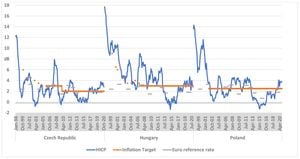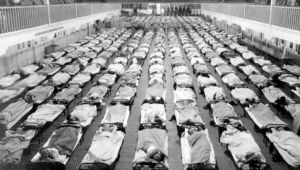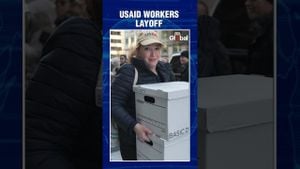At the 2025 Bundestag elections, the Christian Social Union (CSU) is leading across several key regions, melding traditional support with notable gains from the Alternative for Germany (AfD). Among various municipalities like Berglern, Dorfen, and Erding, the CSU maintains its prominence, as reported by Merkur.
Specifically, the CSU achieved 37.7 percent of the votes in Berglern, showing an increase of 8.1 percentage points, with the AfD following closely at 25.5 percent, having garnered substantial support with a rise of 13.8 points. The voter turnout stood impressively at 87.4 percent, indicating strong civic engagement.
Analysts point out the AfD's growth as significant; they secured 16.8 percent of the votes in Dorfen, marking a gain of 9.2 percentage points. The CSU here also led at 37.5 percent, up by 6 points. The voter participation was similarly high, reported at 85.9 percent, with only 0.4 percent of ballots deemed invalid.
“This is indicative of the changing political-oriented sentiment within our community,” stated local political analysts, reflecting the nationwide trend during these elections.
Meanwhile, Erding showcased the CSU's continuing dominance as it reached 38.3 percent of the total votes, improving by 6.5 points since the last election. A notable point was the 16.1 percent voting for the AfD, achieving 9.2 percent growth. Voter participation reached 83.2 percent, and the overall engagement reflects the public’s concern about current political issues.
The effects of electoral reforms are also under scrutiny this election. Although voters completed their ballots as usual, candidates faced heightened uncertainties due to the reduction of parliamentary seats. “The prospect of election reform changes the dynamics, but we remain committed to representing our constituents’ interests,” said CSU candidates during their campaigns.
Similar patterns emerged across other regions, including Moosinning, where the CSU scored 43.2 percent against the AfD's gain of 11.4 points reaching 21.1 percent. The total voter turnout was impressive again at 87.6 percent. Notably, the Green Party suffered losses, which underlines the shifting allegiances among voters. The Greens' results dropped to 9.0 percent.
Voter participation appears to reflect underlying public sentiments about traditional parties, with other candidates from the Democratic and Liberal parties incurring losses. SPD candidate Marco Mohr saw reductions coming to only 9.9 percent of the votes against the backdrop of the revitalized AfD.
The same elections yielded interesting revelations from Allershausen, where CSU candidates put up strong numbers, reflecting 42.1 percent. The AfD made substantial impressions, growing to 19.2 percent — the highest surge noted across the regions surveyed, bringing complexity to the political arena.
“It is no longer just about traditional party lines; this election features more voices within our system, reflecting our complex narratives,” asserted several sociopolitical commentators observing the transitional phases of German politics.
Notably, the municipality of Rudelzhausen also showed this duality, with significant percentages appearing for both the CSU (39.8 percent) and AfD (24.4 percent). Both parties together comprised over 64 percent of the votes, indicating a potential schism within voter preferences.
The extent of changes precipitated by the electoral reforms has become apparent to candidates across the board, as they navigate the intricacies of new legal frameworks mixed with familiar plebiscitary practices. “Undoubtedly, our parliamentary size impacts representation, but we are here to listen and fight for all interests,” commented various candidates throughout their campaigns.
Despite the resurgence of the AfD, traditional parties like the CSU maintain relevancy within their long-established voter base. Results from all surveyed municipalities consistently showcase the unique challenges posed by rising parties venturing for territory previously held by the mainstream. The declines for parties like the SPD and the Greens signal potential shifts but indicate the traditionally rooted support for the CSU is resilient.
Meanwhile, voter engagement remains high across the board. The electoral response visibly showcases proactive civic participation, underscoring the weight of these elections on various levels. The public outcry reflects citizens’ motivations — whether as proponents for change or as guardians of established norms.
The preliminary results from the election highlight potential trajectories for both the CSU maintaining its lead and the AfD's ascent sparking conversations around broader political discourse. These dynamics, paired with electoral reforms, will determine the fabric of future governance within the Bundestag.
The 2025 elections seem to be transforming the political topography of Germany, summarizing the sentiments across the nation — certainty laced with any uncertainty — culminating at the intersection where democratic expressions shape future policies.
Consolidated, the data continues to affirm the efficacy observed across various strata of voting populations amid unprecedented shifts. Observers remain poised for finalized results coming from official electoral reports, which could yield avenues for potential repercussions on Germany's political canvas moving forward.



